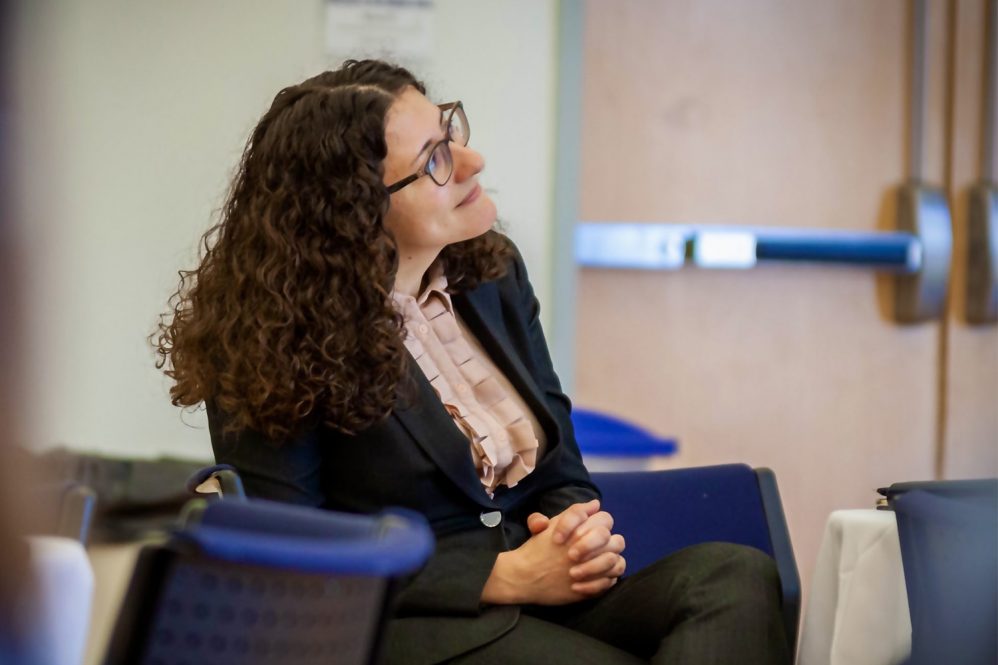Anna Tarakanova has long had an interest in how objects and bodies work. Her chosen specialty in the field of Mechanical Engineering – studying the structure, function, and mechanics of biological systems and materials, especially fibrous protein materials such as elastin and collagen – merges the two.
The assistant professor of mechanical engineering and her team are working to establish a high-fidelity modeling framework for both healthy and degenerated elastins for use as a tool to resolve different pathological stressors affecting how elastin functions from a nanoscale.
During aging and with chronic, often age-related illnesses such as diabetes, cardiovascular disease, and osteoarthritis, elastin can degenerate, causing a decline in normal function. Elastin is an essential structural protein that gives the skin, heart, blood vessels, and other elastic tissues in the body the stretchy quality they need to function.
“At the molecular scale, there are a number of physical-chemical modifications that occur that drive this mechanical degeneration over time,” Tarakanova says. “Because they are quite numerous and act in parallel, it’s difficult to deconstruct which triggers impact mechanics and to what degree. If we can understand the mechanism, we can think about novel therapies to target aging and aging-associated diseases.”
Tarakanova’s work has earned her a 2022 Early Career Development (CAREER) Award from the National Science Foundation. She is one of 11 junior faculty members at UConn this year to receive the coveted award, which recognizes the recipient’s potential as a role model in education and research.
CAREER Awards come with five years of funding intended to provide a foundation for a young professor’s research program. Beyond advancing her research, Tarakanova plans to use the funding to create activities and events to engage and support undergraduate and graduate students, especially those from underrepresented groups. The effort will include a reboot of a Women In STEM Frontiers in Research Expo she co-organized with a colleague in January 2020.
“For me, it was kind of a natural extension of what I wanted to do as a professor, being a woman in STEM and being a minority for most of my education career,” Tarakanova says.
Elastin and collagen are not the only protein materials getting her attention. Early in the pandemic, Tarakanova and two of her graduate students began exploring the spike protein associated with SARS-CoV-2 to figure out how it moved when it interacted with the immune system. She is now working with Paulo Verardi, a pathobiologist in UConn’s College of Agriculture, Health and Natural Resources, and UConn biochemist Simon White to develop new and potentially better ways to stabilize spike proteins for use in COVID-19 vaccines, particularly in relation to emerging new variants of the virus.
“Some of the methods we are using to study the spike protein are related to the methods that we’ve used and continue to use to look at elastin,” she says. “It’s a different project, but it does broadly fall under this fusing of computing and computational models, physics, biomechanics, and biochemistry to understand the dynamic behavior of the COVID spike protein, the protein that sits on part of the corona.”



